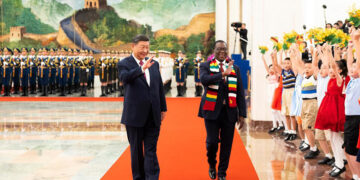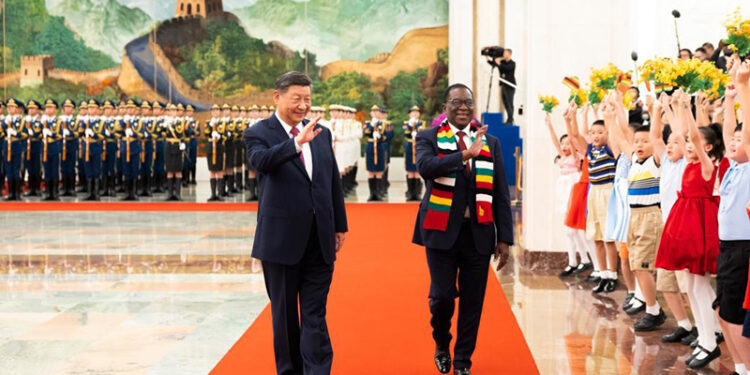Last month, President Emmerson Mnangagwa and his Chinese counterpart, President Xi Jinping, agreed to upgrade Sino-Zimbabwe relations to a “five-star ironclad” cooperation framework.
The decision was made public after bilateral talks that marked the high point of President Mnangagwa’s State Visit to the Asian country ahead of his participation in the 9th Forum on China-Africa Cooperation (FOCAC).
As per President Xi’s own words, contextualising relations within the context of a five-star ironclad framework was a natural progression of the longstanding cooperation between Zimbabwe and China.
What does it mean?
The new era of Sino-Zimbabwe ties will be premised on consolidating and deepening the partnership in line with the common expectations of the peoples of the two countries within the context of sustainable development and modernisation on a win-win basis.
This is also in line with the theme of the 9th FOCAC: Joining Hands to Advance Modernisation and Build a High-Level China-Africa Community with a Shared Future.
In the specific case of Zimbabwe, the five-star ironclad pact is underpinned by five key areas. These are politics, economy and trade, security, culture, and international coordination.
For the areas of politics and international coordination, relations are already excellent. Harare and Beijing see eye-to-eye on matters such as building an equitable multipolar global order, ending the unjust use of sanctions by Western powers to manipulate developing economies and societies, the One China Policy, and a universal green transition.
The upgrading of the cooperation framework provides greater scope for Zimbabwe and China to enhance economic and trade relations on a win-won basis, security collaboration at both bilateral level and within the context of the Global South, and greater cultural understanding and exchanges to deepen friendship.
In his conversation with President Mnangagwa, President Xi affirmed China’s commitment to making development the cornerstone of the country’s relations with Zimbabwe and Africa.
Reciprocally, President Mnangagwa expressed Zimbabwe’s willingness to strengthen cooperation in the areas of governance, infrastructure, agriculture, minerals and energy, among others.
He also thanked China for its support in humanitarian, health and rural development, as well as for solidarity on global affairs of mutual concern.
What happens next?
By any measure, relations between the two nations are on a firm footing, and the pursuance of a five-star ironclad cooperation framework can only bode well.
So what happens next? In particular, how best can Zimbabwe leverage on the state of relations to holistically benefit from China’s economic and political success story?
The Government has laid the groundwork for greater economic and trade cooperation, and it is up to the private sector to seize the day and accrue the benefits of doing business with China.
For starters, Zimbabwe can take advantage of China’s stated objective of promoting “non-resource product imports from Africa” as it moves “towards balanced trade relations”.
Zimbabwean manufacturers should be looking at value addition opportunities availed by Chinese markets. Indeed, they should also seek to benefit from equipment, technology and skills upgrade facilities.
This speaks to cooperation and investment in value chains, and targeted infrastructure and equipment deployment.
It is up to Zimbabwean businesses, piggybacking on the solid political ties at the highest level, to clearly define what it is they want from China, and then pursue that.
As Gregory Nott has pointed out (“Africa is not just navigating its relationship with China – it is shaping the future of this critical partnership on its own terms”), the ball is inour court.
“Experts agree that in the 24 years of FOCAC, African countries still have no coherent strategy towards China, yet China has published several comprehensive strategies towards Africa…
“Ideologically, many African nations align with the Communist party ideals of the Chinese government. In addition, the Chinese have moved some 800 million people out of poverty in 40 years. That’s an incredible achievement, and with the right terms and conditions, China’s trade relations with Africa can be more of a partnership and less of a bank-roller relationship.”
The immense political capital painstakingly built up by the leadership of the two countries over a period of more than five decades must now translate into improved economic performance for Zimbabwe.

























